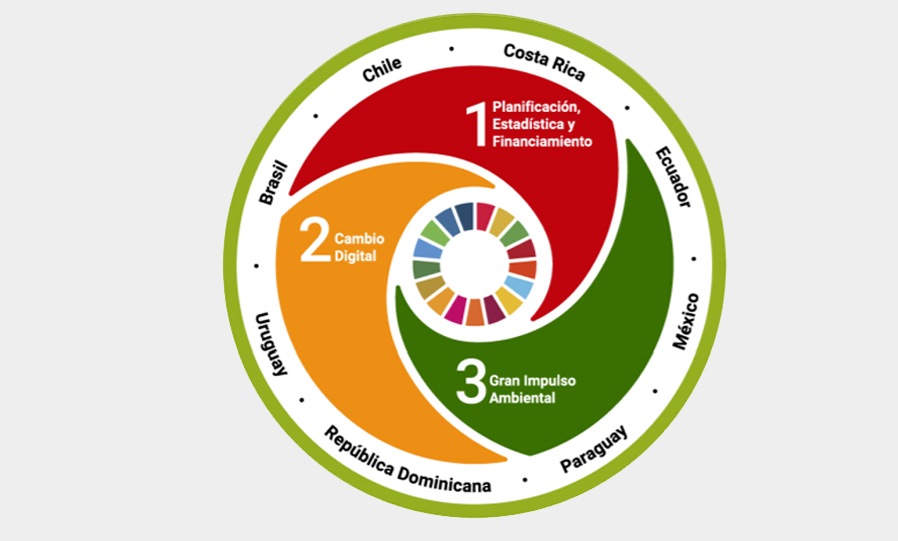2018-2020 Programme
Sustainable development paths for medium-income countries in the framework of the 2030 Agenda for Sustainable Development in Latin America and the Caribbean
The 2030 Agenda for Sustainable Development establishes a vision of transformation towards economic, social and environmental sustainability. It represents a new roadmap which includes a set of 17 Sustainable Development Goals (SDGs). This is a historic opportunity for Latin American and the Caribbean (LAC) to address priority topics for the region, such as inequality reduction, inclusive economic growth and climate change.
At the same time, people in the region have become more and more aware of the weaknesses of the current economic system, especially regarding its social and environmental aspects. Economic-growth models based on export of natural resources and scarcely elaborated products have reached their limits. Likewise, climate change and implementation of the Paris Agreement is becoming increasingly prescient for the region.
However, capacities are still limited for these countries to implement the 2030 Agenda in a holistic and coherent manner so as to formulate and put strategies into practice with the objective of fostering a structural change that respects the environment in a socially acceptable, inclusive and progressive manner.
To support the implementation of the 2030 Agenda and the Paris Agreement in a coherent, intersectoral and holistic fashion, the 2018-2020 Program is executed in nine pilot countries and focuses on three topical areas or clusters:

Three interdisciplinary teams work on the topics, with participation of different ECLAC divisions to advise governments in the region. The program aims at broadening professional and institutional skills in these three areas in order to boast implementation strategies for the 2030 Agenda, so as to promote environmentally conscious, socially acceptable, inclusive and progressive structural change in selected LAC countries.


